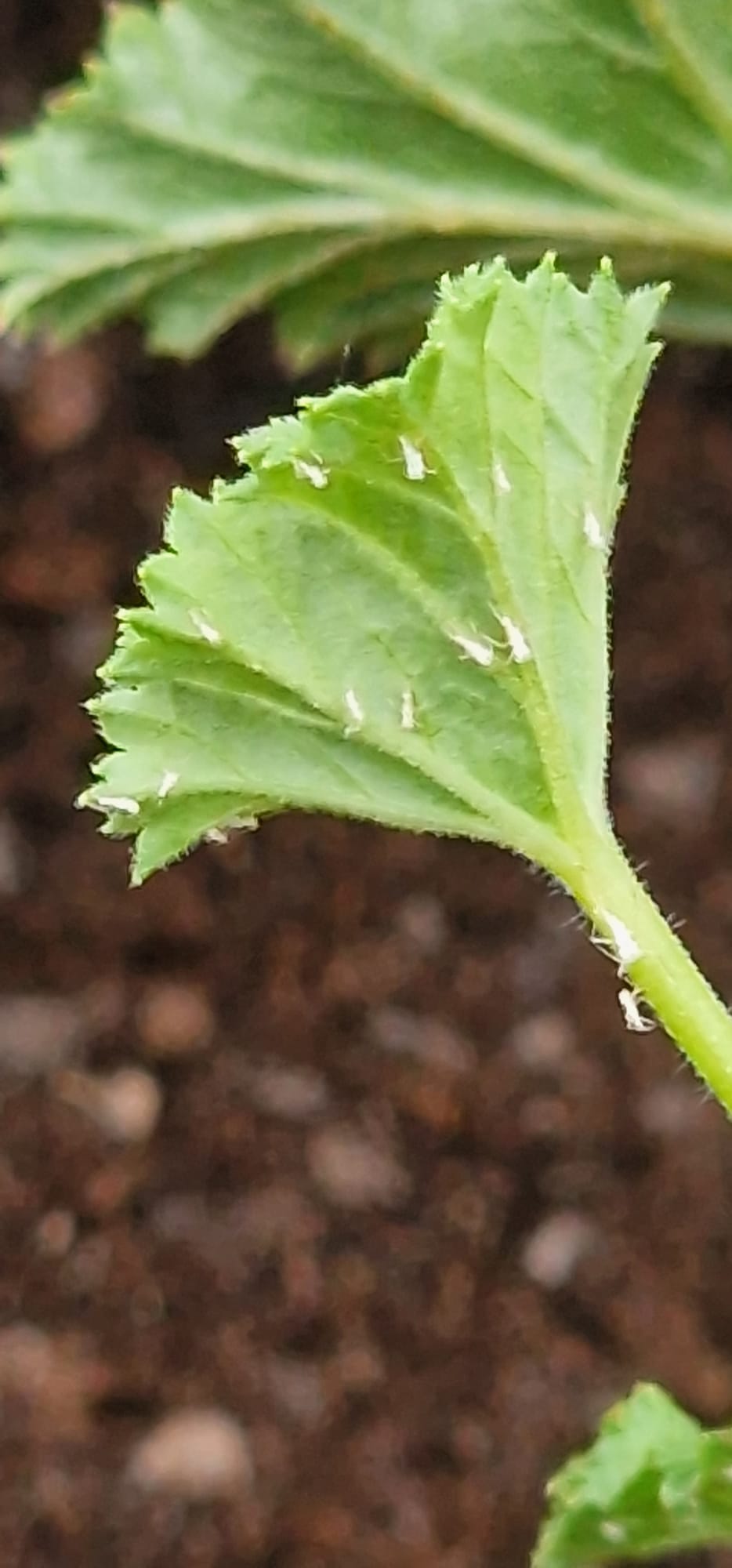
Protecting Pelargoniums: A Guide to Dealing with Bugs and Pests
Share
Now the warmer weather is upon us we need to make sure we protect the vibrant blooms and delightful fragrances of our Pelargoniums from the challenges of garden pests. We have been faced with a lot of aphids this year (last year it was white-fly) and trying to keep their numbers under control using natural methods has been a bit of a challenge.
So in this blog post so we wanted to share some tips with you on how you can keep things under control. We will explore some of the common pests that can threaten the health and vitality of your Pelargoniums, as well as effective ways to protect them and ensure they flourish for you this year. Some links in this blog may be affiliate links from which we may receive a small commission on anything you purchase.
Unwelcome Guests: Identifying Common Pests:
To effectively combat pests, it is crucial to first identify them. Several notorious culprits commonly target pelargoniums, including aphids, spider mites, whiteflies, and caterpillars. Understanding their appearance, behaviour, and the damage they cause is essential in implementing appropriate pest control measures.
Shielding Your Beauties: Prevention and Maintenance:
The old adage "prevention is better than cure" rings true when it comes to safeguarding your Pelargoniums. Implementing preventive measures can significantly reduce the risk of infestations. Techniques such as maintaining good garden hygiene, regularly inspecting your plants, and removing any debris or weeds that could harbour pests will help keep them at bay.
Appropriate watering and regular feeding will help to ensure your plants are healthy. Healthy plants will be more naturally resilient to any pest attack. We recommend using a good quality tomato feed once a week through the summer. We would use either a Tomorite soluble feed or Maxicrop Natural Fertiliser.
Natural Defenders: Beneficial Insects:
Nature provides us with an army of allies in the battle against pests. Beneficial insects like ladybugs, lacewings, and parasitic wasps are natural predators that feed on common garden pests. If you have Pelargoniums planted outside, you might want to consider companion planting to attract these natural predators into your garden.
If you are growing your Pelargoniums in a greenhouse you may want to look at ordering in some biological controls from reputable suppliers, such as Ladybird Plantcare - https://ladybirdplantcare.co.uk/

Environmentally Friendly Solutions: Safe and Effective Pest Control:
When faced with pest infestations, opting for organic and environmentally friendly pest control methods is ideal. Solutions such as neem oil, insecticidal soaps, and homemade remedies using ingredients like garlic or chili can effectively deter and combat pests while minimizing harm to beneficial organisms and the environment.
We spray our plants periodically through their growing phases with SB Invigorator. This is a non-toxic product that encourages healthy growth on plants and controls a range of plant pests including white-fly, aphid, spider mite and mealybug, so could be used on other plants too. It is also a mildewcide which also helps with things preventing the spread of botrytis.
We have recently started to test using an organically certified version of Rose Clear too. We used this early on in the season for additional prevention against botrytis spreading during the damp and dull start to the year!
Integrated Pest Management: A Holistic Approach:
Implementing an integrated pest management approach combines various strategies to achieve long-term pest control. By combining preventive measures, natural predators, organic solutions, and cultural practices, you can create a comprehensive system that minimises pest damage while preserving the health and beauty of your Pelargoniums.
Try and be as natural as possible, if you do have an outbreak of white-fly or aphids try not to panic and reach for the chemical pesticide straight away, there are ways to get control of the problem which will be of wider benefit.
While there may be challenges along the way to protect your Pelargoniums from a range of different pests, being armed with the knowledge and the right tools will hopefully mean you will be able to keep enjoying your favourite blooms all summer long!
Happy growing!


